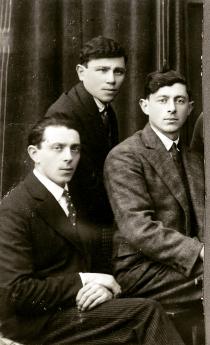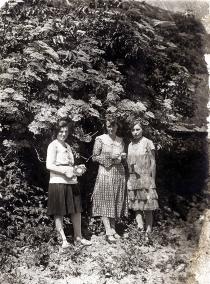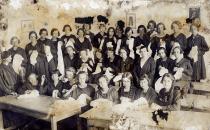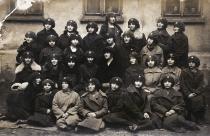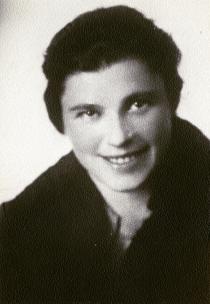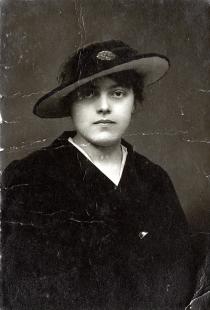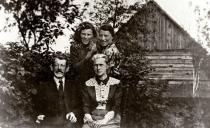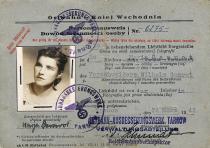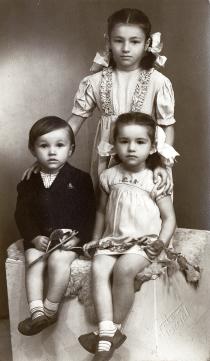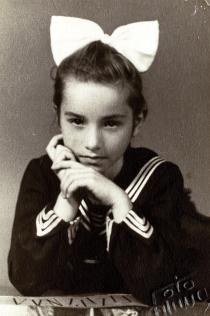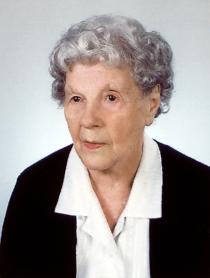This is a picture of my class in Artistic Crafts Industry School in Rzeszow where father signed me up because he thought that I?d learn some trade. This picture was taken in the 1st grade, 1924/1925 school year. The headmistress of the school is in this picture, in the middle row, third from right. I cannot recall her name. I do not remember how this picture was saved.
My school was a private one, four grades and it had the status of a secondary school. It was a very good school. There were army headquarters in Rzeszow, and Polish officers weren't allowed to marry anyone who didn't have a secondary education. So girls from manor houses went to that school with me, daughters of officers and other officials. And again I was the only one [only Jew] there. There were more than 40 girls altogether. No, I wasn't separated. On the contrary, I had lots of friends.
I learned how to make hats, lingerie; I learned sewing, clothing design, all kinds of embroidery. I learned how to design dresses for operas, I was often given assignments for the holidays, to prepare dresses for some opera, or to draw them on these large panels. I remember this, because we took a special subject for that, costumology. So you had to know all kinds of costumes which were worn in Europe since the earliest times. I don't remember this today exactly, those were complicated things. I also studied French. I could learn everything there, including cooking and baking, but I didn't want to take advantage of that, because I didn't like that. [What the interviewee means is that she would not eat non-kosher food.] I had an internship during my fourth year of studies. This fourth year was not obligatory for all students. Only if you wanted to.
After this school, I unfortunately didn't do anything more, although I wanted to educate myself further in this area, but you needed to have a recommendation for another school. Yes, there was the 'numerus clausus' at universities and in those schools, when they had a look, they'd say, 'We don't have any openings.' There was no government statute, but they wouldn't accept you. Anyway, these schools were very expensive and, by that time, my parents were not doing so well anymore. After Grandfather died, the brick factory went bankrupt. Yes, it didn't take long. Grandfather was the first one to start a brick factory, but then all those people around us set up two more, so there was competition and, by then, there was already: 'Nie kupuj u Zyda' [Don't buy from a Jew.]. And that's when it started. I remember these signs and the first incidents. These signs - 'Nie kupuj u Zyda' and 'Bij Zyda' [Get the Jew] - were posted on all announcement boards.

